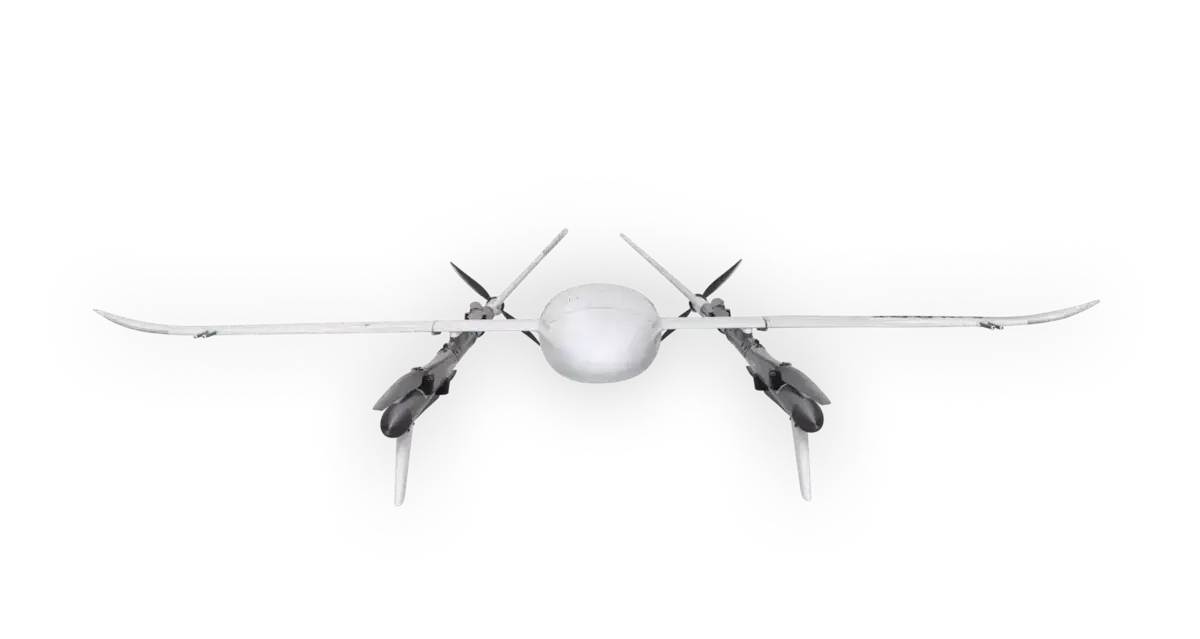
DRC’s first Medical Drone vaccination program
Effective and efficient immunisation supply chains are an essential component of a quality healthcare system. However, a lack of reliable infrastructure remains a pervasive barrier to achieving immunisation coverage in low-resource environments.
In the Democratic Republic of Congo (DRC), one in every seven children dies of a vaccine-preventable disease before the age of five.
In 2020, UNICEF reported that only 35% of children are fully vaccinated before their first birthday. In addition, UNICEF estimated that 86,905 children in the DRC had not received the oral polio vaccine, and 74,860 did not get a dose of the tetanus-diphtheria-whooping cough-hepatitis B-Hib3 vaccine.
Helping to reach the unreached
In July 2019, President Félix-Antoine Tshisekedi Tshilombo convened the National Forum on Immunisation and Polio Eradication. Speaking at the July 2019 event, the President made a powerful and public commitment to immunisation as a pillar of universal health coverage.
That very same year, Swoop Aero — in collaboration with Washington-based NGO VillageReach and with funding from Gavi, the Vaccine Alliance, funding from the Bill and Melinda Gates Foundation, Crown Philanthropies and the Patrick J. McGovern Foundation launched a pilot in the Equateur province. Swoop Aero aircraft delivered essential vaccines, syringes, medicines, and other supplies with the support of officials from the national, provincial, and local level of governance and community members in Equateur province.
During the pilot program, the Swoop Aero’s two-way healthcare logistics network was deployed, enabling the immunisation of children in remote health facilities and the return of pathology samples for testing. The flights successfully demonstrated to all stakeholders that Swoop Aero’s drone logistics platform leads to more timely and consistent product deliveries, thereby contributing to the objectives laid out in the National Forum on Immunisation and Polio Eradication.
Overcoming geographic challenges
Following our successful program with UNICEF in Vanuatu, VillageReach sought our expertise to demonstrate how our aircraft could surpass some of the geographic, transportation, and infrastructure challenges in the province. These include crossing the Congo River and its tributaries, overcoming the difficulty of forests and rougher roads and maintaining communication with the aircraft in extremely remote and sparsely populated areas.
The solution
Our fleet of aircraft transported vaccines, syringes and medicines to a hard-to-reach Congolese village where children were vaccinated. Each flight safely delivered medical supplies—maintained at the right temperature—in around 20 minutes, expediting what is typically a three-hour journey by road. We transported a range of medical commodities between the EPI vaccine distribution centre in Mbandaka, capital of Equateur, and a rural health centre in Bikoro health zone, called Widjifake.
Over the initial five‐day period, 50 flights to and from Widjifake were conducted, amounting to 20 hours of flight time. The flights covered over 2,000 kilometres and delivered two months’ worth of vaccines and critical medical supplies for four health centres nestled deep in the equatorial forest, returning with time-sensitive blood samples for testing.
With vertical take-off and landing capabilities as well as conducting simultaneous flying operations, we demonstrated Swoop Aero’s system-to-scale operations to a number of health centres and to decrease turnaround and delivery times.
Our aircraft landed directly at the health centre in Widjifake and returned to the Provincial Health Division of Equateur with lab samples, data collection forms, and requests for medicines needed. The take-off site in Mbandaka was the first drone port in DRC, and central Africa, to be approved by Civil Aviation Authorities.
The network success

Our Work in the DRC Continues
Swoop Aero’s successful operations are part of a broader strategy to reach remote populations with vaccines and other medicines called Nouvelle Génération des Chaînes d’Approvisionnement, or NGCA. Our flights bridge the gap between hard-to-reach populations and the vital health products they need. Swoop Aero currently serves 40 health facilities with large volumes of products in volatile weather conditions, over long distances, and in areas without any means of communication, which have historically proven to be a challenge.
“The integration of drones into DRC’s health supply chain is a significant step toward equitable access to health care for the country,” said The Honorable Minister of Health of the Democratic Republic of Congo, Dr Eteni Longondo. “The commencement of these flights means thousands of children will have increased access to immunisation services. It also means that there is an additional mechanism in place for the upcoming COVID-19 vaccine distribution.”
Some key metrics to date
Over the course of approximately 12 months in 2021, between 2 to 6 drones have delivered 131,183 doses of vaccines and other immunisation products (over 900 kg or 3830 litres in total) and have travelled over 102,000 km (63,550 miles) in 1015 flight hours.
These products directly benefitted over 30,000 children under one year of age, over 10,000 pregnant women, and additionally over 27,000 people aged 1-60 who were vaccinated against yellow fever as part of a month-long mass vaccination campaign in DRC:
The drones also collected over 100 patient samples (to test for various infectious diseases) when they dropped off the vaccines and returned lab test results to the remote health centres since many of the communities do not have access to mobile phones or the internet.
Swoop Aero’s sustained air logistics operations in Equateur province have showcased the feasibility, utility and need for air logistics to bridge the gap in access to health, forged community trust and upskilled community members. The existing operations have delivered health products routinely and on-demand to 70 hard-to-reach health facilities, covering 22,000km2 and serving over half a million people— representing the largest two-way aeromedical logistics network in the world.
In February 2022, new funding was allocated by the Gates Foundation, which will allow the existing Equateur drone network to continue supplying vaccines monthly to the 40 hard-to-reach health facilities through to September 2022, and also to intensify reverse transport of lab samples, with a focus on polio samples, from these communities to Mbandaka, the capital of Equateur, and from there to the national lab in Kinshasa, supporting global efforts to eradicate polio fully.









